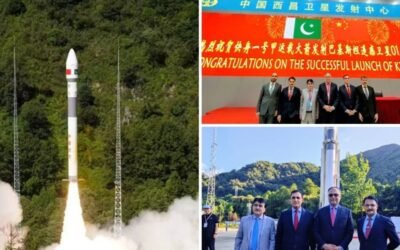Humanitarian crises, once viewed through a purely ethical lens, are now increasingly and overtly functioning as instruments of state power. In South Asia, a region defined by complex historical rivalries and porous borders, the plight of refugees and internally displaced persons has become a potent geopolitical leverage.
The large-scale return of Afghan refugees from neighboring Pakistan and Iran is a recent and poignant example of this trend. These movements are not merely humanitarian events but are instead deeply embedded in the strategic calculations of states, turning human suffering into a bargaining chip in a high-stakes regional game.
This politicization of aid and refugee flows fundamentally erodes the principles of international humanitarian law and poses a severe challenge to the ethical foundations of global assistance.
The Weaponization of Refugee Policy
States use migration policies not just to manage borders, but to exert pressure on rivals, secure political concessions, or consolidate domestic power. The recent mass repatriation of Afghan refugees from Pakistan exemplifies this. For decades, Pakistan hosted millions of Afghans, a move often framed as an act of hospitality and religious solidarity.
However, as geopolitical dynamics shifted and relations with the Afghan-Taliban government in Kabul became fraught, Pakistan’s stance hardened. The “Illegal Foreigners Repatriation Plan” was implemented, leading to the forceful return of hundreds of thousands of undocumented Afghans. This move, while officially justified on security grounds, was widely perceived as a form of state pressure on the Afghan-Taliban regime to address cross-border terrorism and other security concerns.

Similarly, Iran has also been an instrumental player in this dynamic, using the presence of Afghan refugees as both a source of cheap labor and a tool for diplomatic leverage. The country’s periodic crackdowns and deportations of undocumented Afghans are often synchronized with political tensions, signaling a clear willingness to use human beings as pawns to achieve political objectives.
This strategy creates a cycle of instability, as the mass influx of returnees overwhelms the fragile infrastructure and economy of Afghanistan, which in turn fuels further migration and radicalization, a cycle that neighboring countries can then cite as a reason for their own securitized policies. The humanitarian dimension is eclipsed by a transactional logic, where the well-being of a displaced person is a variable to be manipulated, not a fundamental right to be protected.
The Ethical Collapse of Aid
The politicization of humanitarian crises extends beyond refugee flows to the distribution and allocation of aid itself. Aid, which should be neutral and impartial, is frequently weaponized to reward allies, punish adversaries, or reinforce a particular political narrative.
In the context of South Asia, international donors and regional powers alike have been accused of using humanitarian assistance as a means of influence. Aid is sometimes conditional on political compliance, or it is channeled through specific channels that serve a state’s interests rather than the needs of the most vulnerable.
This practice creates a dangerous ethical dilemma for humanitarian organizations. They are faced with the choice of either compromising their principles of neutrality and impartiality to gain access to a crisis-affected population or adhering strictly to their principles and risking a loss of access and funding.
The result is a blurring of lines between genuine humanitarian action and foreign policy objectives. This manipulation not only undermines the credibility of humanitarian actors but also has a direct impact on the effectiveness of aid delivery, as resources may not reach those who need them most.
The ethical implications are profound, as it makes a mockery of international humanitarian law, which is founded on the core tenets of humanity and non-discrimination. When aid becomes a tool of statecraft, the suffering of people ceases to be a human tragedy and becomes a strategic asset.
Critical Analysis and the Future of Humanitarianism
The politicization of humanitarian crises in South Asia is a symptom of a broader global trend where national interests are increasingly trumping international norms. The very concept of international humanitarian law, with its emphasis on the protection of civilians and the provision of aid without prejudice, is being eroded. The principle of non-refoulement, which forbids a country from returning a refugee to a country where they would face persecution, is routinely challenged or ignored for national security concerns.

Source: UN
For international organizations and human rights advocates, the challenge is to navigate this treacherous landscape without becoming complicit in the politicization of suffering. This requires a renewed emphasis on the core principles of humanitarianism: humanity, neutrality, impartiality, and independence.
It also necessitates a more robust legal and political framework to hold states accountable for their actions. This includes strengthening international tribunals and creating effective mechanisms for sanctions against states that use humanitarian crises as geopolitical levers.
Ultimately, the weaponization of refugee flows and aid is a profound betrayal of the shared human values that underpin international cooperation. It not only perpetuates cycles of violence and instability but also erodes the very possibility of a common moral ground. As the world continues to grapple with the effects of climate change, conflict, and economic upheaval, the frequency and scale of humanitarian crises will only increase.
How the international community responds to this challenge whether it allows these crises to be exploited for political gain or commits to upholding the dignity and rights of all people will define the future of humanitarianism and the ethical state of global affairs.




























